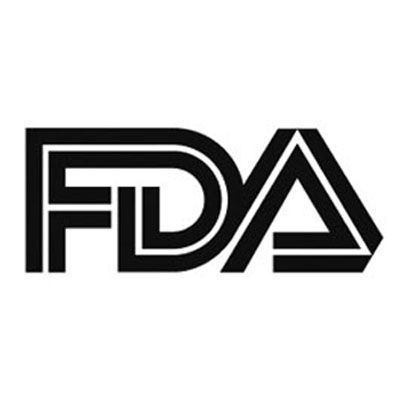FDA Approval Sought for Denileukin Diftitox in Persistent or Recurrent CTCL
Results from the phase 3 Study 302 of denileukin diftitoc in patients with persistent of recurrent cutaneous T-cell lymphoma led to the submission of a biologics license application for the drug.

A biologics license application has been submitted to the FDA for denileukin diftitox (formerly E7777, Ontak), a potential treatment option for patients with persistent or recurrent cutaneous T-cell lymphoma (CTCL), Citius Pharmaceuticals, Inc announced in a press release.1
“The treatment of advanced cutaneous T-cell lymphoma remains a complex and challenging unmet medical need. Each year, thousands of patients are diagnosed with CTCL, a debilitating orphan disease with no single standard of care. Patients are often treated with multiple alternate therapies. Citius is proud to advance the only potential CTCL therapeutic with a mechanism of action that delivers a cytotoxic protein by binding to the IL-2 receptors found in malignant T-cells and immunosuppressive T-regulatory cells,” said Leonard Mazur, chairman and chief executive officer of Citiusin a press release.
The application for approval is supported by results from the pivotal phase 3 Study 302 (NCT01871727). In the study, the primary end point assessed was objective response rate (ORR), and the key secondary end points were duration of response (DOR), time to response (TTR), ORR, and the number of patients with adverse events (AEs) and serious AEs.1,2
In 91 patients, denileukin diftitox demonstrated anti-tumor activity with an ORR of 42.3%, (95% CI, 30.6%-54.6%), meeting the primary end point of the study. The median DOR with denileukin diftitox in patients with CTCL was 5.7 months (95% CI, 0.7+, 26.1+ months), and the median TTR was 1.41 months. Overall, the clinical benefit rate shown with denileukin diftitox in the study was 53.5% (95% CI, 41.3%-65.5%).3
The rate of AEs and serious AEs appeared to be consistent with published data of denileukin diftitox in approved indications. The most common AEs observed were nausea, fatigue, increased alanine aminotransferase, chills, and peripheral edema. There were no new safety signals observed.
Study 302 was a multicenter, open-label, single-arm study that enrolled patients with CTCL who were aged 18 years or older. All patients enrolled were required to have an ECOG performance status of 0-2, a life expectancy of at least 3 months, and adequate bone marrow, hepatic, and renal function.2
The study excluded patients who were previously treated with denileukin diftitox, had an active malignancy within 24 months of the study, had major surgery within 2 weeks of study enrollment, and those with active infections or comorbidities that may have interfered with treatment during the study.
"We look forward to continuing to engage with the FDA as they review our BLA and bringing this treatment option to patients, if approved," stated Mazur, in the press release.1 "The BLA filing for denileukin diftitox marks the first of our pipeline candidates to be submitted for FDA approval."
REFERENCES:
1. Citius Pharmaceuticals, Inc. submits biologics license application to the U.S. Food and Drug Administration for denileukin diftitox for the treatment of patients with persistent or recurrent cutaneous t-cell lymphoma. News release. Citius Pharmaceuticals. September 28, 2022. Accessed October 3, 2022. https://bit.ly/3C6cleb
2. A trial of e7777 in persistent and recurrent cutaneous t-cell lymphoma. Clinicaltrials.gov. Updated January 25, 2022. Accessed October 3, 2022. https://clinicaltrials.gov/ct2/show/NCT01871727?term=eisai&cond=ctcl&draw=2&rank=2
3. Citius Pharmaceuticals reports topline data from the pivotal phase 3 study of cancer immunotherapy I/ONTAK (E7777) for the treatment of persistent or recurrent cutaneous t-cell lymphoma (ctcl) in support of bla submission. Citius Pharmaceuticals. April 6, 2022. Accessed October 3, 2022. https://bit.ly/3C2CVoo
Examining the Non-Hodgkin Lymphoma Treatment Paradigm
July 15th 2022In season 3, episode 6 of Targeted Talks, Yazan Samhouri, MD, discusses the exciting new agents for the treatment of non-Hodgkin lymphoma, the clinical trials that support their use, and hopes for the future of treatment.
Listen
Later-Line CD19 and Bispecific Therapies Considered After CAR T
October 1st 2024During a Case-Based Roundtable® event, Christopher Maisel, MD, discussed third- and fourth-line therapy and barriers to bispecific therapy use in diffuse large B-cell lymphoma in the second article of a 2-part series.
Read More